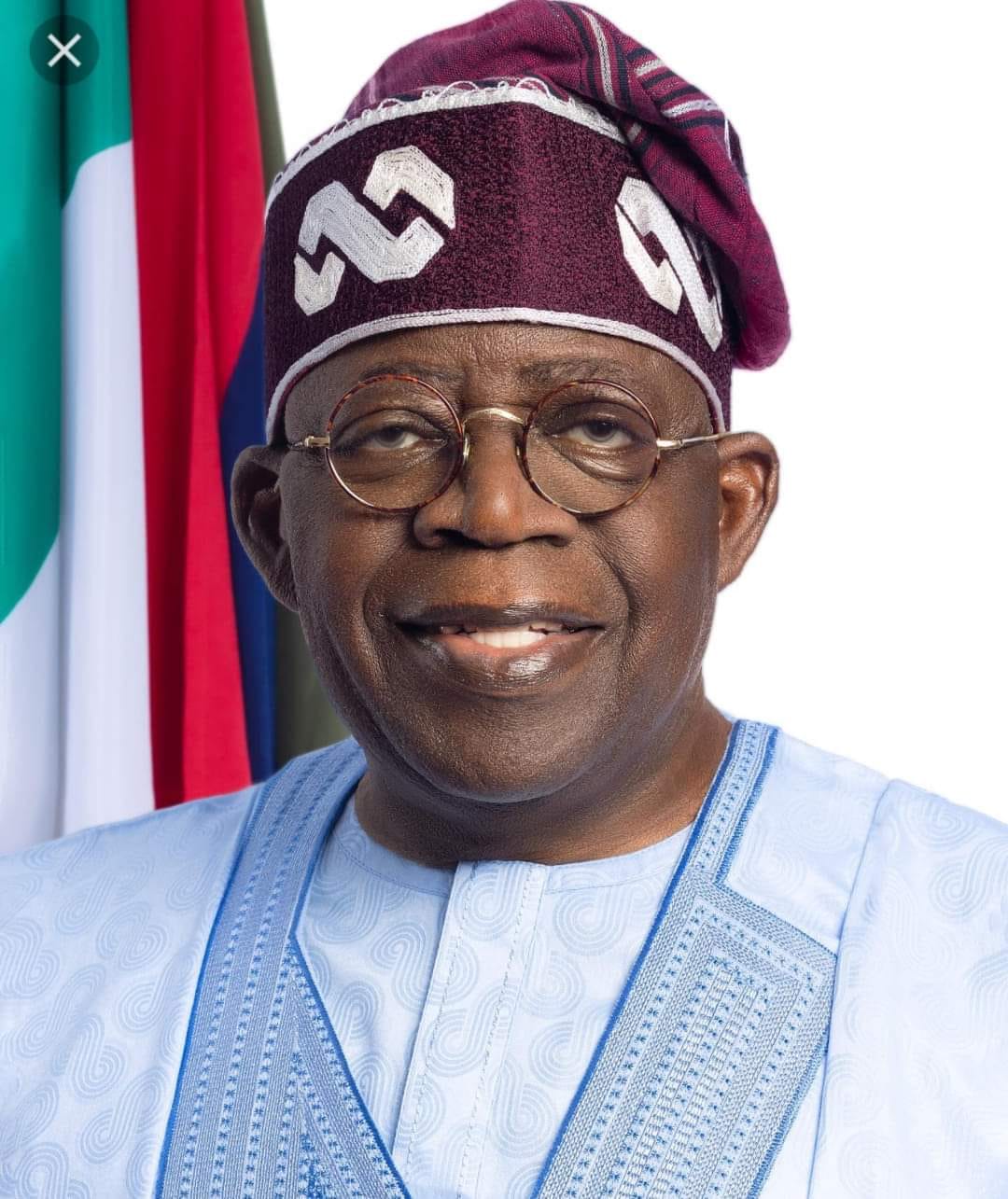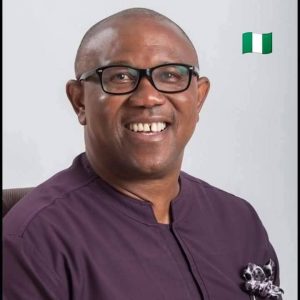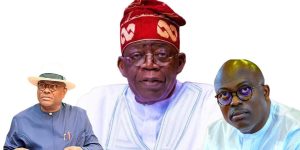Tinubu Working from Abroad and Will Return After Easter – Presidency
In a political landscape often marked by uncertainty and speculation, the physical presence of the President of Nigeria is a matter of national interest. President Bola Ahmed Tinubu’s temporary absence from the country has stirred conversations among political observers, opposition voices, and the general public. However, the Presidency has clarified the situation, asserting that the President is not on a vacation or neglecting his duties but is actively working from abroad.
The Presidency, through the Special Adviser on Information and Strategy, Bayo Onanuga, stated unequivocally that President Tinubu remains committed to his constitutional responsibilities despite his physical absence from the country. According to Onanuga, the President departed Paris for London over the weekend and has continued to oversee critical aspects of national governance.
“The President left Paris for London at the weekend and has maintained constant communication with key government officials, overseeing critical national matters. This includes giving directives to security chiefs to tackle emerging threats in parts of the country,” Onanuga’s statement reads.
YOU MAY READ
President Tinubu Appoints Anambra APC Chairman Chief Basil Ejidike as Chairman Governing Board, National Root Crops Research Institute, Umudike
He added that the President’s return to Abuja will follow the conclusion of the Easter holiday and reiterated that the machinery of governance continues to run smoothly in his absence.
While specific details surrounding the reason for President Tinubu’s trip were not disclosed in the official statement, it is known that this is not the first time a Nigerian President has chosen to work from abroad. President Tinubu’s trip reportedly began in Paris, France, where he was involved in bilateral discussions and high-level meetings. He later proceeded to London.
The duration of the trip, spanning approximately two weeks, was previously communicated to Nigerians, and his aides maintain that there is no cause for alarm. Nonetheless, the secrecy that often shrouds presidential trips has left room for speculation, especially in a country where past leaders have sometimes traveled abroad for undisclosed health reasons.
In defending the President’s absence, Onanuga emphasized that Tinubu’s leadership is not hindered by geography. In today’s interconnected world, a President can participate in meetings, issue directives, and oversee the operations of government remotely.
Indeed, President Tinubu has been reported to be in constant touch with key officials, including the Vice President, the Secretary to the Government of the Federation (SGF), the National Security Adviser (NSA), and ministers across various departments.
YOU MAY READ
President Tinubu Commends National Assembly for Approving Emergency Rule in Rivers State
A government source who chose to remain anonymous added, “Technology has bridged distances. The President is not just reading memos; he’s giving orders, approving documents, and following up with developments. He’s in charge.”
For many Nigerians, the current development evokes memories of President Muhammadu Buhari’s frequent medical trips to the United Kingdom, which sometimes stretched for months. At one point, Buhari spent over 100 days abroad, prompting debates about transparency, the right to information, and leadership accountability.
However, the Tinubu administration is attempting to draw a clear distinction between the current President and his predecessor. Unlike Buhari’s time, when the Vice President often had to take over as Acting President, Tinubu’s aides insist that he is actively in charge and does not require any temporary transfer of power.
This is a critical narrative the Presidency is trying to uphold – that President Tinubu is healthy, fit, and running the government, even from outside Nigeria.
The reaction from Nigerians has been mixed. On social media platforms such as X (formerly Twitter), Facebook, and WhatsApp groups, citizens have expressed a range of opinions, from indifference to concern.
YOU MAY READ
House of Reps allegedly Receives $25k bribe, Backs Tinubu’s Emergency Rule in Rivers, Push for Shorter Suspension Period for Gov Fubara, Others
Supporters of the President argue that Tinubu has shown no sign of dereliction of duty and that it is not uncommon for world leaders to work from outside their countries. They point to U.S. Presidents who often work from Camp David or take working vacations.
However, critics, particularly members of the opposition and civic activists, are not as lenient. The Peoples Democratic Party (PDP), in a statement issued through its National Publicity Secretary, described Tinubu’s trip as “a demonstration of lack of seriousness and insensitivity to the plights of Nigerians.”
“Nigerians are going through one of the toughest periods economically. The country is dealing with food inflation, currency instability, and security threats. The President has a duty to be present and to lead from the front, not from a luxury apartment in London,” the statement read.
Human rights lawyer Inibehe Effiong added on social media, “Governance in Nigeria has become so transactional that the people no longer question why their leader governs from a foreign land. We deserve better.”
According to Section 145 of the 1999 Constitution of Nigeria (as amended), the President is required to transmit a written declaration to the National Assembly whenever he intends to go on vacation or is unable to discharge the functions of his office. If such a declaration is not made, the President is assumed to be in charge.
There has been no indication that such a letter was sent in this instance, reinforcing the government’s position that President Tinubu is not on vacation and remains in active command.
However, legal experts argue that this provision, though clear, can be interpreted differently depending on the context. “There is a difference between a short official trip and a prolonged medical leave,” constitutional lawyer Mike Ozekhome, SAN, said during a TV appearance.
YOU MAY READ
Obey Wike, Implement Supreme Court Ruling Within Shortest Possible Time, Tinubu Tells Rivers Governor Fubara Amid Rift With Wike
During his time abroad, President Tinubu is said to be closely monitoring a number of key issues:
The resurgence of attacks in Plateau, Benue, and parts of the South East has once again brought the security architecture of the country under scrutiny. Reports suggest that the President has given specific orders to the military and police high command to quell emerging threats.
The foreign exchange crisis continues to impact the Nigerian economy, with the Naira experiencing sporadic gains and losses. Analysts expect Tinubu to initiate more economic diplomacy in Europe, particularly regarding foreign direct investment and debt restructuring.
The long-awaited overhaul of the downstream oil sector remains a pressing issue. The President has previously signaled interest in accelerating the full implementation of the Petroleum Industry Act.
Some key appointments remain pending, especially in the boards of federal agencies. It is believed that Tinubu is using this period to finalize some of those lists, which could be released shortly after his return.
Since assuming office in May 2023, President Tinubu has demonstrated a more hands-on, centralist approach to governance. His background as a former governor and political strategist has shaped his tendency to maintain tight control over the levers of power.
Observers say Tinubu’s decision to work remotely is part of a larger leadership style that emphasizes delegation with supervision.
Political analyst Jide Ojo noted, “President Tinubu is not new to the idea of being the ‘godfather’ pulling the strings behind the scenes. What he’s doing now fits into that mold. The question is whether Nigeria, at this time, can afford such an approach.”
Easter in 2025 fell in late March, and the President’s return was projected shortly afterward. While the exact date was not publicly confirmed, sources close to the Villa hinted that Tinubu would be back before the end of the first week of April.
Upon his return, the President is expected to preside over a number of critical meetings, including the Federal Executive Council (FEC), National Security Council, and a series of diplomatic engagements.
Moreover, many Nigerians are waiting to hear directly from the President, either through a press briefing or a national address, to re-establish his physical presence and outline his administration’s next steps.
A recurring theme in the public discourse is the issue of transparency. While the Presidency insists everything is under control, critics argue that a clearer communication strategy is needed.
“There’s a trust deficit. People don’t just want to be told the President is fine – they want to see him, hear him, and be part of the process. Democracy thrives on accountability,” said Ayo Sogunro, a public affairs commentator.
Indeed, in countries with mature democracies, leaders’ absences are usually accompanied by press releases, schedules, and media appearances that keep the public informed. Nigeria, still grappling with the vestiges of military rule and elite secrecy, continues to struggle with this level of openness.
President Bola Tinubu’s decision to work from Europe at a time of economic tension and rising insecurity is, in many ways, a litmus test for modern governance in Nigeria. While the idea of remote leadership is not inherently flawed, its success depends on consistent communication, visible results, and public trust.
If Tinubu’s time abroad yields tangible outcomes – whether in the form of improved security, foreign investment, or economic stabilization – he may yet silence his critics. However, the longer he remains out of the country without direct engagement with Nigerians, the louder the questions will grow.
As the Presidency assures that governance is proceeding without interruption, the Nigerian public waits not just for Tinubu’s return, but for reassurance that their leader is truly present – in spirit, mind, and body.
Would you like help formatting this for publication, adding headlines for sections, or including reactions from political stakeholders or foreign diplomats?
STATEHOUSE PRESS RELEASE STATEMENT ON PRESIDENT TINUBU’S RETURN TO NIGERIA President Bola Ahmed Tinubu remains fully engaged in Nigeria’s governance even though he is away in Europe. His absence remains temporary and in line with the communicated timeframe of approximately two weeks. The President left Paris for London at the weekend and has maintained constant communication with key government officials, overseeing critical national matters, including directives to security chiefs to address emerging threats in some parts of the country. His return to Abuja and the resumption of duties at Aso Villa will follow the conclusion of the Easter holiday. The President’s commitment to his duties remains unwavering, and his administration continues to function effectively under his leadership. We appreciate the public’s concern and assure all Nigerians that governance proceeds without interruption. Bayo Onanuga Special Adviser to the President, Information and Strategy April 17, 2025





